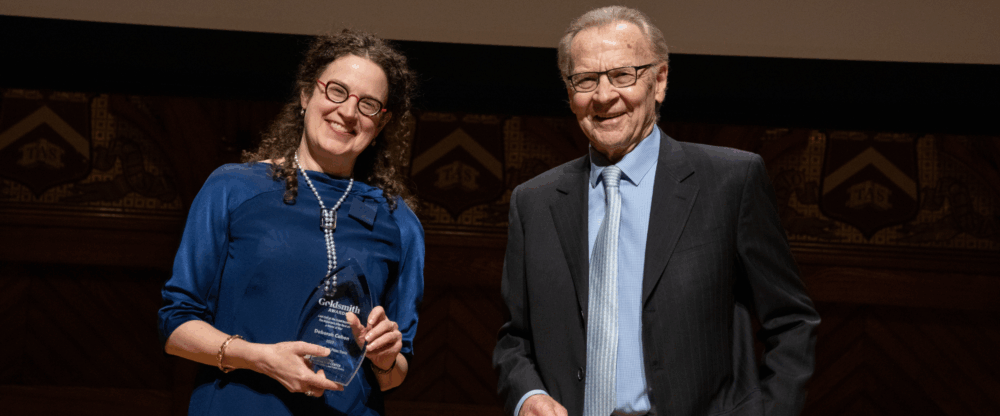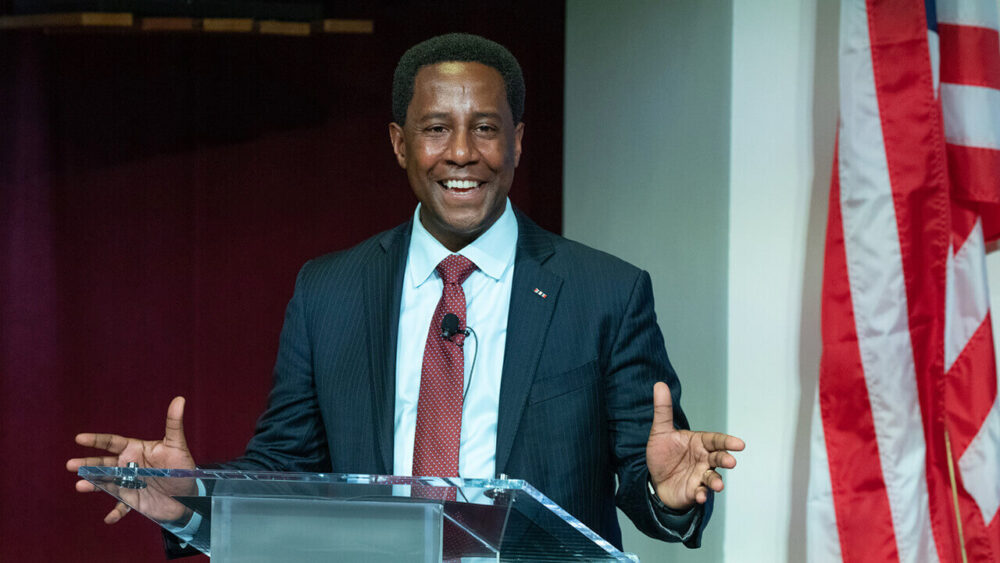
Nominations open for the 2026 Goldsmith Awards
Newsletter

Our weekly roundup of news found at the intersection of media, politics, policy and technology, from the Shorenstein Center and from around the web.
Snake and Stranger: Media Coverage of Muslims and Refugee Policy. A new paper by Meighan Stone, Entrepreneurship Fellow (spring 2017) and former president of the Malala Fund, argues that the predominantly negative coverage of Muslims and refugees on U.S. TV news contributes to negative public opinion of Muslims, and in turn, policies such as President Trump’s “Muslim ban.”
How Women Journalists Are Silenced in a Man’s World: The Double-Edged Sword of Reporting from Muslim Countries. A new paper by Yeganeh Rezaian, Joan Shorenstein Fellow (fall 2016) and Iranian journalist, shines a light on the difficulties women reporters face while working in Muslim countries, as well as the importance of the stories they tell.
Seen a fake news story recently? You’re more likely to believe it next time, from Journalist’s Resource.
Jon Ossoff, the Congressional Candidate Social Media Built. Nicco Mele, Shorenstein Center director, weighs in on the Georgia race. “Imagine this special election without social media, without the internet. He would never have raised that much money. Word just wouldn’t have spread, and it would have been too hard to give. It’s an example of technology skewing the traditional rules of politics.”
Health care journalists need to cover the AHCA from the ground up. Trudy Lieberman, spring 2001 fellow, provides considerations for how to cover “a critical piece of legislation that remains, in many ways, a moving target.”
Jeremy Corbyn, Bernie Sanders and the Challenge of 2018. Walter Shapiro, spring 2005 fellow, writes that “there is a danger in over-interpreting the British [election] results,” and that “the challenge facing the Democrats is how to assemble the broadest possible anti-Trump coalition.”
Why the White House Is Reading Greek History. Curious what the West Wing is reading lately? The Kennedy School’s own Graham Allison’s new book, Destined for War: Can America and China Escape Thucydides’s Trap?, has been making the rounds between members of the Trump Administration since Allison’s recent visit to the National Security Council. Allison’s most recent work explores the dangers of new power rising to meet existing hegemony. Looking to sixteen past incidents over 500 years, Allison examines conflicts from the Peloponnesian War to America and China’s present-day leaders. There are many and varied paths toward conflict – and peace – for China-U.S. relations, which Allison explores deftly.
Snapchat Wins an Edward R. Murrow Award. Snapchat’s Good Luck America, hosted by Peter Hamby, spring 2013 fellow, has received the Murrow Award for Excellence in Innovation from the Radio Television Digital News Association.
Among the Puffins. Derrick Z. Jackson, fall 2016 fellow, is also a nature photographer. His photography and an interview are featured in this month’s Down East Magazine.
Trafficking and Autonomous Vehicles: A Long Road Ahead. HKS student Doug Lavey writes about the challenges self-driving vehicles will present for the law in the Kennedy School Review.
Sign up to receive Media and Politics Must Reads in your inbox each week. Also connect with us on Twitter and Facebook for more updates.


Center News

Center News